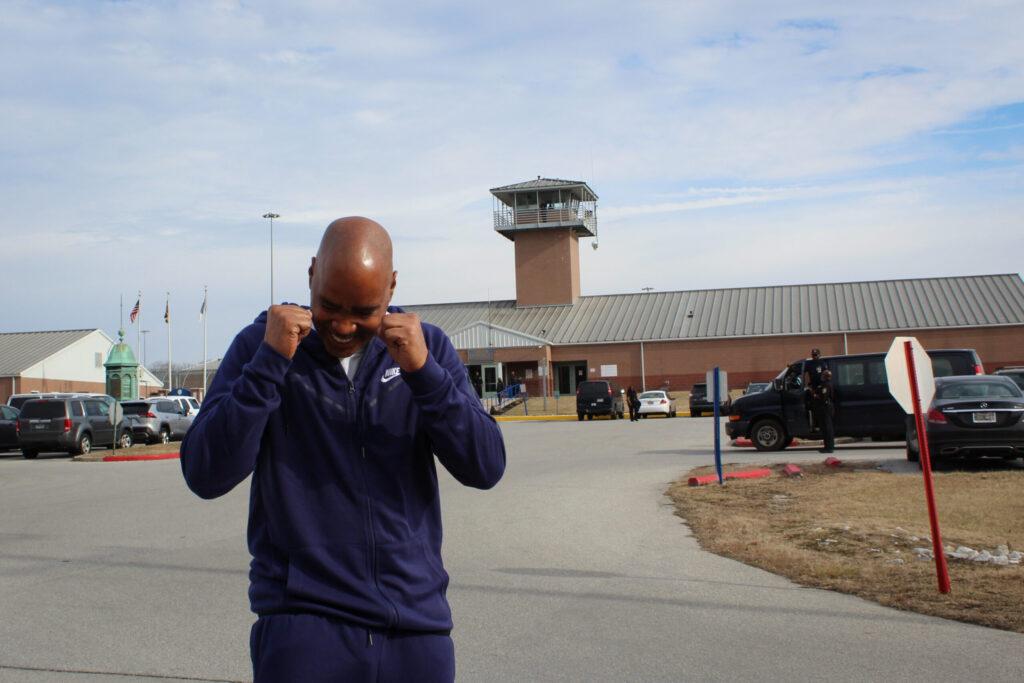Kenneth Bond was released from prison with the help of the Georgetown Prisons and Justice Initiative (PJI) after being incarcerated for over 27 years.
Bond was 16 years old when he was sentenced to life in prison, plus 60 years, for a murder that he did not commit. The Baltimore City Circuit Court approved a motion reducing Bond’s sentence under Maryland’s Juvenile Restoration Act (JRA), a piece of legislation passed in 2021 that reduces the sentences of people convicted of crimes as juveniles.
Marc Howard, director of PJI and a Georgetown professor, said the JRA has opened doors for people who committed crimes as youths.
“The JRA allows someone like Kenneth, who was just 16 years old when he was given life in prison, to have the court take a second look at their sentence and consider the person they are today, their accomplishments, and their potential to contribute positively to society,” Howard wrote to The Hoya.
Howard said he taught Bond when he was a student at the Jessup Correctional Institution in 2014 and learned about his story.
Georgetown students in Howard’s “Making an Exoneree” (MAE) course, which helps advocate for old cases of individuals wrongfully convicted to be reinvestigated, centered Bond in their 2018 documentary.
The course is highly selective and receives around 100 applications for 15 spots. Students spend the semester creating a documentary that makes the case for a wrongfully convicted individual. Students spend time with their “clients” and work to tell the stories of the wrongfully convicted.

Nada Eldaief, Cassidy Jensen and Julia Usiak were three students in the course who worked on Bond’s case. They identified the issues in the eyewitness accounts and Bond’s initial trial. They created a documentary and website to make the case that Bond was not guilty of the 1995 murder.
They included information about Bond’s private defense attorney, William Monfried, who was unprepared for the trial and disbarred in 2000. Monfried had a history of failing to show up to court proceedings.
Howard then became more directly involved in the legal side of Bond’s case.
“When we launched the Making an Exoneree program a few years later in 2018, Kenneth’s was one of the cases we selected for our inaugural cohort of Georgetown undergraduate students to reinvestigate. In Making an Exoneree, which is now in its sixth year, small groups of students reinvestigate likely wrongful conviction cases like Kenneth’s, create short documentary films, and advocate for the release of innocent people through websites, social media, events, and petitions.,” Howard wrote.
Howard worked with a team from Cooley LLP and the Mid-Atlantic Innocence Project to help support Bond.
Isabella Todaro (CAS ’23), a student in the MAE class this semester, went to see Bond’s release and said the experience was transformative for her.
“It was absolutely one of the most incredible moments of my life,” Todaro wrote to The Hoya. “It demonstrated how powerful the MAE program is and how tangible the impact of our work can be.”
Bond’s release was the fifth for the Making an Exoneree program. The other releases included Valentino Dixon in 2018, Eric Riddick and Keith Washington in 2021 and Arlando “Tray” Jones III in 2022. Many of these individuals were present to welcome Bond home.
The JRA allowed for Bond’s release, but he will still need to appear in court to clear his name.
Bond plans to continue his education and hopes to pursue a degree in psychology. He is set to pick classes at the University of Baltimore in the first few days of being home. He pursued his education while at Jessup.
“Since earning his GED in 1999, Bond has pursued every available opportunity for higher education, taking courses with a variety of colleges and universities – including Georgetown – through the Jessup Correctional Institution Scholars Program,” according to the Prisons and Justice Initiative’s press release. “He was later admitted to the University of Baltimore’s Second Chance College Program and has excelled academically.”
Howard said that homecomings such as Bond’s are the highlight of his work.
“This one was particularly powerful and emotional since I have become so close with Kenneth over the past decade, and I am overjoyed to see him back home where he belongs,” Howard wrote.





















